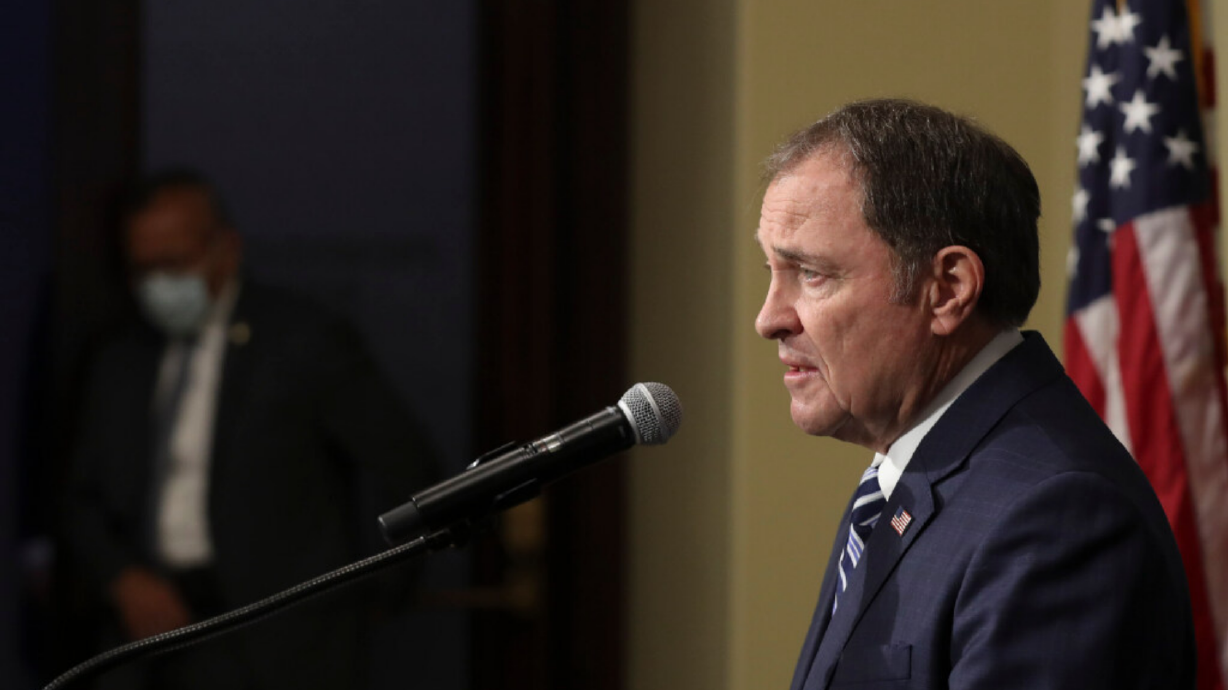Estimated read time: 4-5 minutes
This archived news story is available only for your personal, non-commercial use. Information in the story may be outdated or superseded by additional information. Reading or replaying the story in its archived form does not constitute a republication of the story.
SALT LAKE CITY — Advocates for homeless and low-income Utahns are calling on Gov. Gary Herbert to extend a statewide hold on evictions for those directly affected by the coronavirus outbreak.
In a Wednesday letter to Herbert, 21 groups asked him to shield tenants from eviction until July 15 and further protect them by prohibiting late fees or rent increases until then.
Herbert’s current executive order is set to expire after May 15, when those who deferred rent for April or this month must pay. As the deadline looms, housing advocates are encouraging those at risk to seek help and try to negotiate with property owners.
Urban Crossroads Center Executive Director Bill Tibbitts, who authored the letter, said the extension would allow rental assistance programs in Utah to get up and running and provide a boost to those who are still hurting financially, sparing them from losing their homes.
“We’ll have a better success rate if we unveil it during a period when the moratorium’s still in place,” said Tibbitts, whose Salt Lake City-based organization runs food pantries, clothing distribution and a network of advocates.
A statewide landlord industry group says such a plan is not necessary, however. The vast majority of Utahns have continued to make rent, said Paul Smith with the Utah Apartment Association. And many property owners have worked with their tenants, waiving fees and making other concessions.
“Landlords have been superheroes,” Smith said, emphasizing that evictions are a costly burden and a last resort for property owners. “We think the response has been phenomenal, that it’s working,” he said of the governor’s existing order.
In an online forum hosted by Salt Lake City on Thursday, Heather Lester with Utah Community Action said she’s encouraged that many have been able to reach deals.
When renters arrive home to find a notice to pay or vacate within three days, shock generally consumes them for the first day. She urges them to begin calling for help by the next day and to phone their landlord to potentially work out a plan, and begin documenting any agreement. On day three, she said, the “psychological trauma” sets in.
“Eviction is a crisis on its own,” Lester said.
In their Wednesday letter, the advocates argued that an extension would be a public health measure, helping to make sure each Utahn can stay home as the virus outbreak is expected to reach its peak over the next two months. Moreover, they contend it would align more closely with the rollout of federal aid.
Starting Monday, the Department of Workforce Services will begin doling out an initial $1 million in federal rent-help money to those who don’t qualify for unemployment, such as undocumented Utahns, those who continue to work full time but with a pay cut, and workers who had multiple jobs and lost one.
An additional $3 million in federal stimulus money is expected to become available shortly after that, said Jonathan Hardy, director of the department’s housing and community development division.
“We know a lot of people have already been connected to unemployment insurance,” Hardy said, but at the same time, “we are kind of keeping our eyes on the gaps and cracks.”
Utah lawmakers also have set aside $20 million in relief for tenants, farmers and ranchers, and businesses that rent their spaces. The money that is set to become available Aug. 1.
Governor’s spokeswoman Anna Lehnardt said Herbert’s April 1 directive is now under review, part of his office’s standard protocol for any order set to expire shortly.
The groups urging the governor to extend it include religious organizations, plus others who advocate for disabled Utahns, immigrants and minorities. They include the Crossroads Urban Center, Christ United Methodist Church, Comunidades Unidas, the Utah Black Roundtable and the Utah Health Policy Project.
They note that many in the Beehive State have not received stimulus or unemployment checks. Undocumented immigrants also are not eligible for the payments; neither are their spouses or children.
“Extending the eviction deferral order will provide more time for renters to stabilize their incomes until we see greater certainty in the economy that more of us will be able to return to work,” the letter says.
It calls for measures to guard landlords from foreclosure as many have worked with tenants to allow them to stay in their homes, the groups said. Efforts to help the property owners stay afloat are needed so they can continue to provide housing “in a tight and turbulent market,” their letter states.
Smith, with the apartment trade group, said landlords are not calling for such help. He said few need to take advantage of a federal hold on foreclosures for those with government-backed mortgages.
Tibbitts, who wrote the letter, said he was surprised by the wide array of advocates that signed it.
“We had a bunch of people who’d never been in the same room together that all agreed this was a problem,” he said. “For me, it was indicative that this is something that a lot of people were concerned about.”










